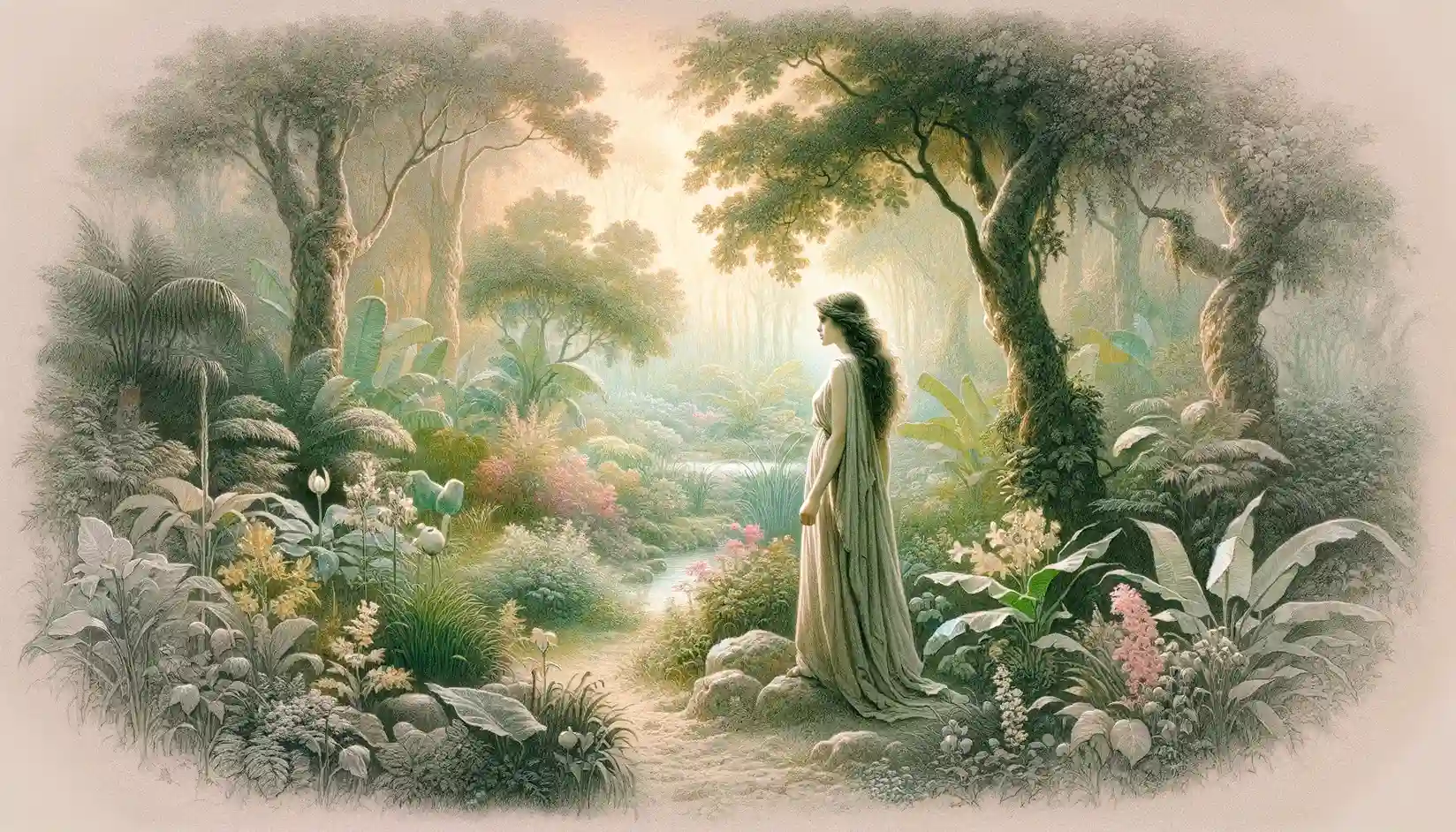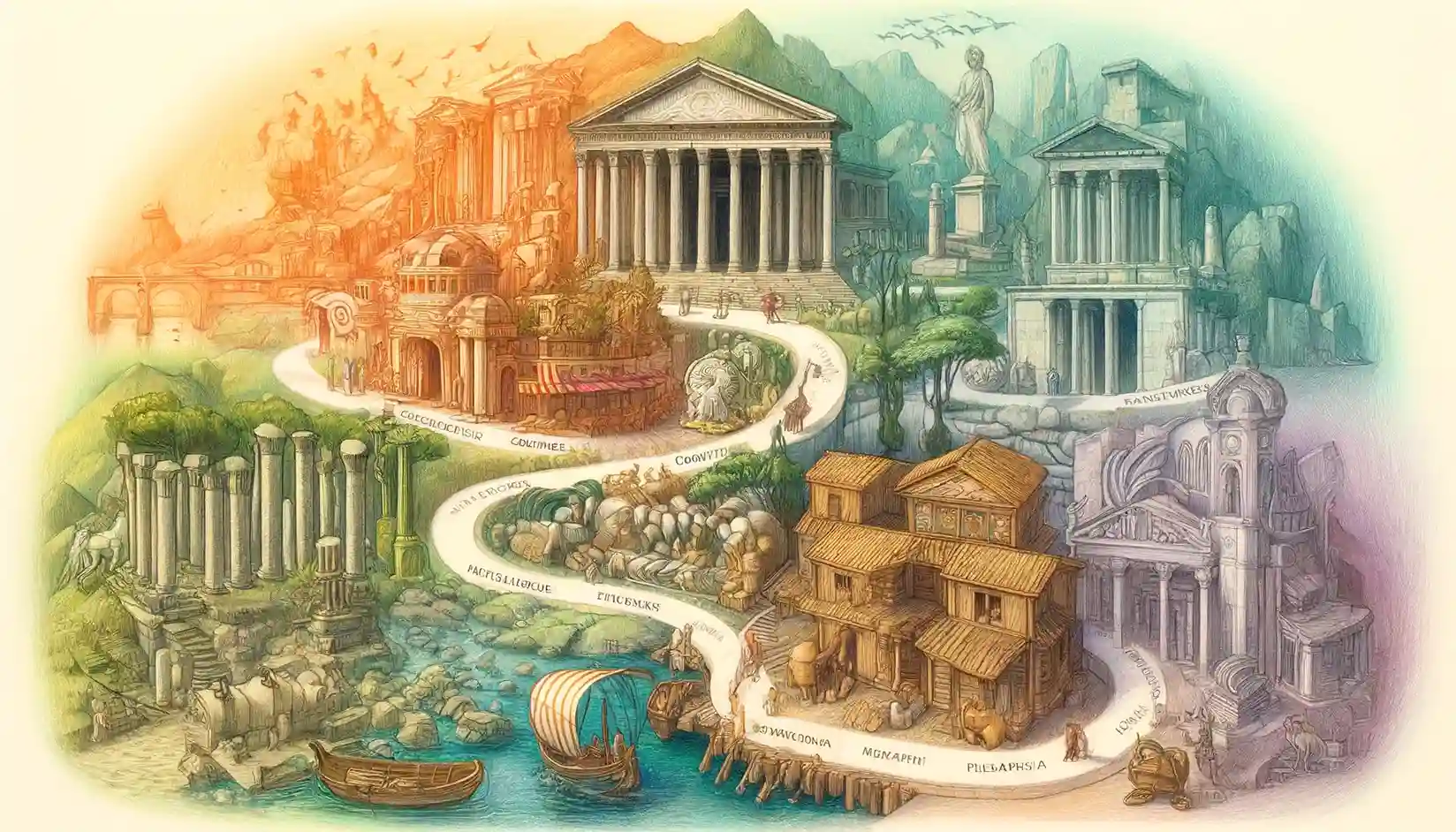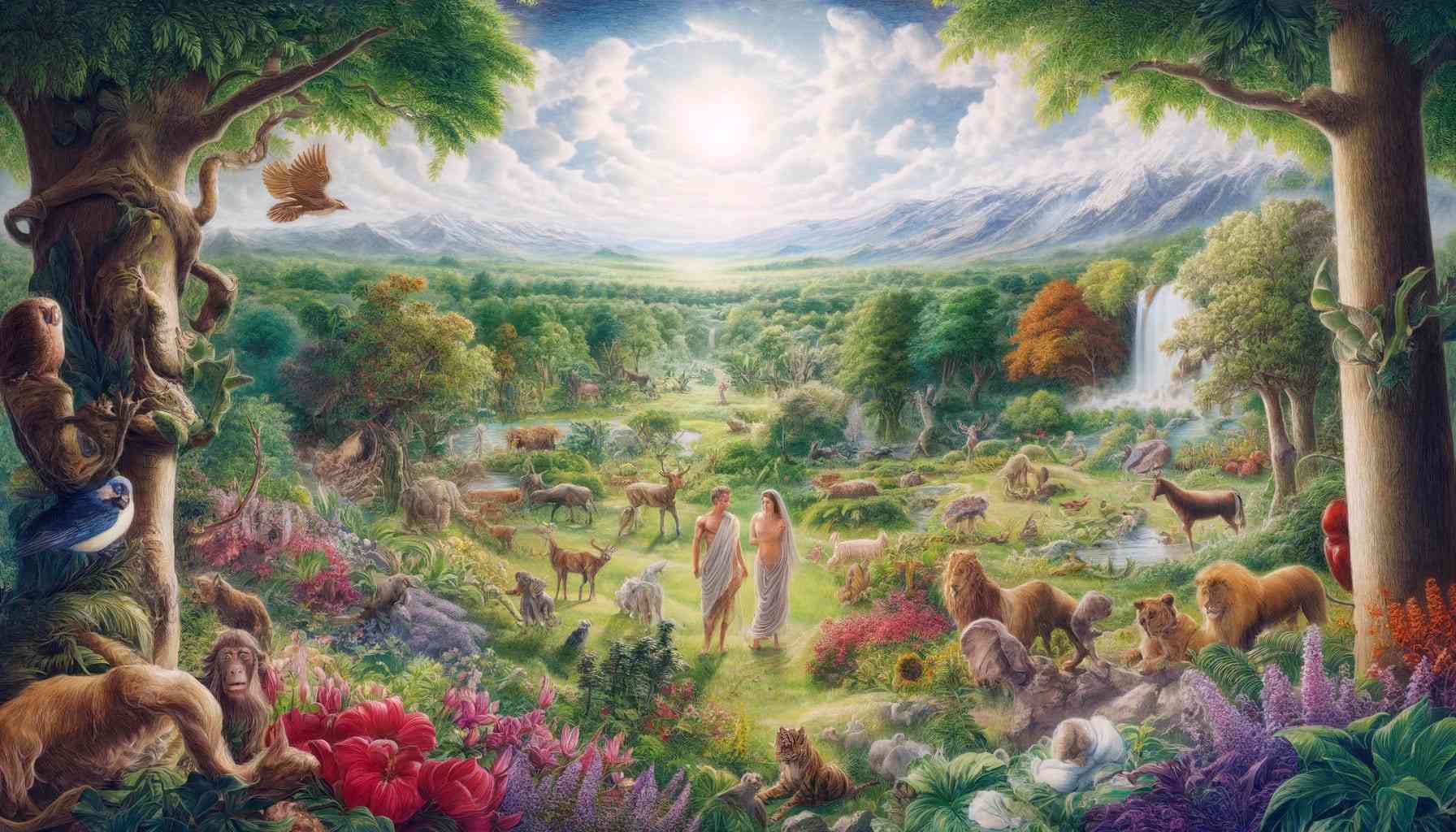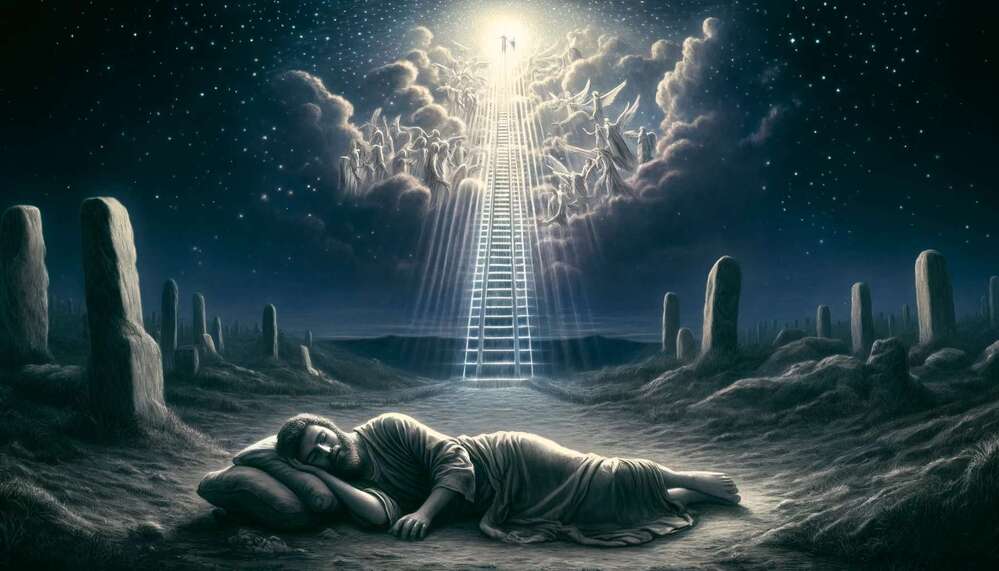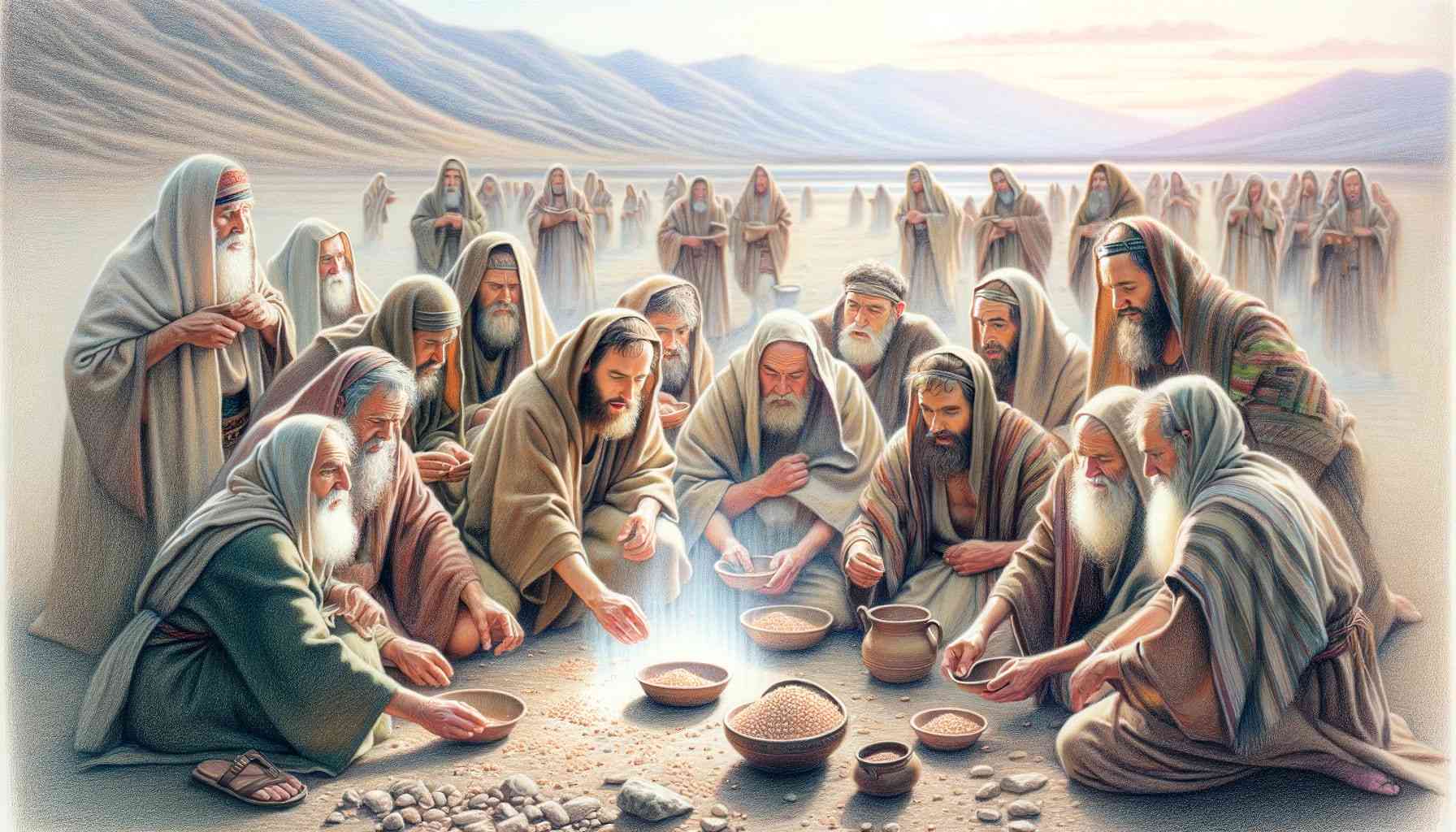Eve, the first woman according to the Bible, was created from Adam’s rib and is central to the Genesis narrative, playing a key role in the events of the Garden of Eden and the onset of human sinfulness.
Paul’s epistles to various communities such as Rome, Corinth, Galatia, Ephesus, Philippi, Colossae, and Thessalonica address local issues and broader theological themes, shaping the foundational doctrines and practices of early Christianity.
The Book of Genesis explores themes such as creation, the fall, redemption, covenant, monotheism, sovereignty, sin, the patriarchs, the Imago Dei, messianic hope, and serves as a theological manifesto, spanning narratives from primeval to patriarchal history, and addressing deep questions about biblical theology, human nature, divine purpose, moral responsibility, faithfulness, genealogies, and contrasts with ancient Near Eastern myths.
Jacob’s Ladder, described in Genesis 28:10-19, encapsulates a profound spiritual moment where Jacob dreams of a ladder connecting heaven and earth, symbolizing God’s continuous presence and reaffirming the Abrahamic covenant, which not only marks a pivotal point in Jacob’s personal transformation but also signifies the enduring bridge between the divine and humanity, reflecting themes of covenant, grace, and divine guidance.
The narrative of Manna from Heaven in Exodus 16, rich in biblical theology, highlights divine provision, tests of obedience and trust, emphasizes Sabbath observance, signifies a covenant relationship, points to eschatological fulfillment in Christ, and underscores the importance of community and unity among God’s people.

